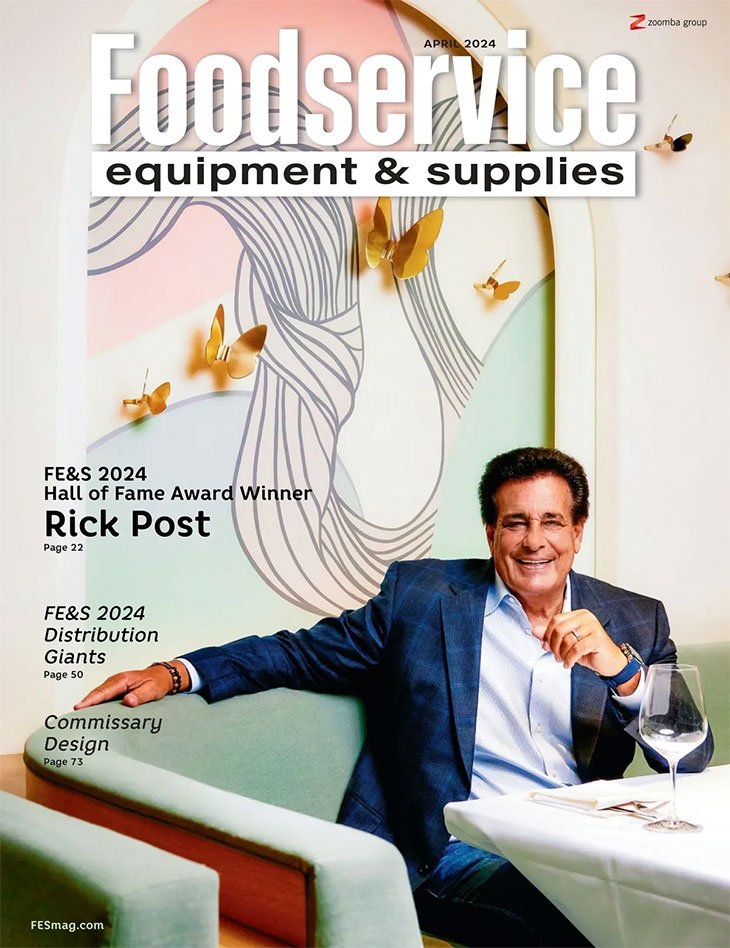Quick-service chain Wienerschnitzel, which celebrates its 51st anniversary in 2012, positions itself as a fun experience where customers can find reasonably priced menus. The chain is working toward obtaining LEED certification so it will be positioned as a green company.
 A bona fide pioneer of the quick-service market, John Galardi founded the chain in 1961 with a single hot dog stand in Wilmington, Calif., and named it Der Wienerschnitzel. The chain dropped “der” in 1977 when it changed the original gothic-style logo to the current one. Wienerschnitzel serves more than 120 million hot dogs annually and earns recognition for its proprietary chili recipe.
A bona fide pioneer of the quick-service market, John Galardi founded the chain in 1961 with a single hot dog stand in Wilmington, Calif., and named it Der Wienerschnitzel. The chain dropped “der” in 1977 when it changed the original gothic-style logo to the current one. Wienerschnitzel serves more than 120 million hot dogs annually and earns recognition for its proprietary chili recipe.
Based in Irvine, Calif., Wienerschnitzel franchises 351 stores in 10 states and Guam. The chain is part of Galardi Group, which is also the parent company of The Original Hamburger Stand and Tastee-Freez LLC.
Each unit’s bright, ketchup-and-mustard color scheme helps create a fun ambiance. Recently installed, easy-to-read menu boards assist customers in making quick food choices across a variety of price points.
“Our basic concept is a hot dog stand with both indoor seating and drive-thru service that can do tremendous volume very quickly when necessary,” says Lujana Winkles, director of operations. A 24-year Wienerschnitzel veteran, Winkles assumed her current position four years ago. “We’ve kept the menu simple, procedures succinct and simple, and the kitchens simple so we can provide a great quality product and guest service.”
The back of the house comprises approximately 25 percent of a typical unit’s footprint; and each restaurant employs a linear approach to connecting the back of the house to the front of the house. “All products move from delivery to distribution at either the customer counter or drive-thru with minimal staff effort,” Winkles says. Approximately 65 percent of Wienerschnitzel’s business comes from drive-thru sales.
When food deliveries arrive at the restaurant’s back door, staff place items in a refrigerator, freezer or dry storage area. “Shelving allows us to store products easily and efficiently,” Winkles says. The cooling equipment’s placement allows staff to easily access products without traveling very far from their work stations.
Staff members fulfill orders after seeing customers’ selections on a kitchen video screen that records information from the POS system. “Information is on a one-item delay so menu items can be cooked and assembled either onto a tray for in-house diners or for to-go customers,” Winkles says.
At one end of the cookline, staff use a fryer to cook plain fries and jalapeno poppers. They cook hot dogs, corn dogs and burgers on designated flat grills and then dress them at a station containing a refrigerated condiment table. Toppings and condiments include lettuce, tomatoes, pickles, onions, cheese, mustard, ketchup, relish and sauerkraut.
The chain’s renowned chili, which serves as a topping for dogs, fries and burgers, is heated on Wienerschnitzel’s proprietary steam table. The steamer table also heats the buns. “It was developed for us in the 1960s and has been upgraded slightly during the years,” Winkles says.

For dessert, staff dispenses Tastee-Freez soft-serve ice cream. Beverage containers hold soda, iced tea and lemonade. Customers receive beverage cups when they order so they can fill their own fountain drinks. Milk and bottled water are also offered. During nonpeak periods at some restaurants, staff deliver food to in-house diners.
Wienerschnitzel is working to become a more eco-friendly company. In an effort to receive LEED certification, the chain is developing recycling programs for cardboard, cans and plastics, including their ketchup and mustard containers. “We’ve upgraded to compact fluorescent lights (CFL), more environmentally friendly paint, recyclable packaging, LED signage on the stores’ exteriors, and more efficient, energy-saving equipment,” Winkles says.
Sustainability also extends to the health and longevity of the company itself. As the company looks to the next 50 years, it’s safe to say Wienerschnitzel will stay close to its roots by keeping the concept simple while continually introducing refreshed menu items and store designs.
Key Players
- Owner: John Galardi
- President and COO: Dennis Tase
- Director of Operations: Lujana Winkles
- Manager of Restaurant Standards and Construction: Vince Chacon
- Architects and General Contractors: Approved suppliers listed in the chain’s construction procedures manual
- Equipment Dealer: Wienerschnitzel’s three approved dealers are Silva Bridgewater, Western Pioneer Sales Co. and PrimeSource.
Facts of Note
- Ownership: Galardi Group
- Opened: 1961
- Headquarters: Irvine, Calif.
- Units: 351 franchised units in 10 states and Guam
- Size: Freestanding, from 17,500 square feet to 22,000 square feet; lease of an end-cap space with a drive-thru, 1,800 square feet
- Seats: 48 to 65
- Average Check: $6+
- Franchise Cost: Through April 2012, franchisee fee is $32,000. Royalties are 1 percent the first year; 2 percent the second year; 3 percent the third year, 4 percent the fourth year; and 5 percent the fifth year and thereafter. If a franchisee leases a building or space, the development cost is approximately $500,000. If the building is built on a ground lease, the cost to open a new Wienerschnitzel is $500,000 to $1 million. If the land is to be purchased, land cost can range from $250,000 to $750,000.
- Hours: On average, 9 a.m. to midnight daily
- Menu Specialties: Chili dogs, corn dogs, mustard dogs, kraut dogs. A bacon-wrapped hot dog and pastrami were added recently.
- Staff: 18 to 25, including three to five managers, in the 2,000-square-foot model
- Total Unit Investment: $500,000 in 22,000-square-foot unit
- Equipment Investment: $200,000 to $250,000, which includes all equipment and ventilation. Building and equipment packages range from approximately $500,000 to $1 million.
- Website: www.wienerschnitzel.com




